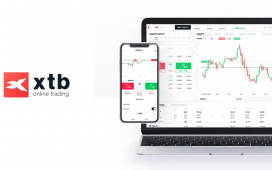Summers: Brexit was historic economic error which pushed up inflation
Brexit was a “historic economic error” which has hurt the UK economy and helped to drive up inflation, Larry Summers, the former US Treasury secretary has warned.
Summers told Radio 4’s Today programme that UK economic policy has been “substantially flawed for some years,” and singles out the exit from the European Union as a factor driving up costs.
Asked why inflation in the UK is significantly higher than in the US, Summers explains:
I think Brexit will be remembered as a historic economic error that reduced the competitiveness of the UK economy, put downward pressure on the pound and upwards pressure on prices, limited imports of goods and limited in some ways the supply of labour.
All of which contributed to higher inflation.
Larry Summers on Today eviscerating Brexit and its dire effect on UK economy
— Caroline Kenyon (@C_Kenyon1) June 1, 2023
[The US consumer prices index fell to 4.9% per year in April, while UK inflation was 8.7%.]
Summers adds that the Bank of England also blundered, saying:
I think that was reinforced by very ill-judged monetary policies that were substantially too expansionary for too long.
[A report last week showed that Britain’s departure from the European Union has accounted for about a third of the increase in food bills for households since 2019, equivalent to about £250.]
Q: Is the chancellor right to say [last week] that if interest rates have to continue to rise for longer than people hope for, in the interest of bringing down inflation, that is a better thing to do?
Summers says it is better to stick with the unpalatable medicine of higher rates, rather than stopping the treatment too soon and risk “a recurrence of the underlying infection”.
Usually when you’re prescribed a course of medication, even if the drugs are not so pleasant themselves, and even if they possibly have some side effects, it’s usually better is to take the whole course of medicine, the first time it’s prescribed than to stop taking the medicine early.
Q: So we are heading for a recession in the UK (as some economists fear)?
Summers says he would be surprised if two more years passed without the UK entering into recession, but will leave forecasts to the UK experts.
Summers also warned that the US is on “an unsustainable borrowing trajectory”, which required a significant adjustment.
The US should increase its revenue base, Summers argues, so it can increase tax revenues. He also argues US spending should be contained, although that won’t be easy as national security and defence needs are rising, as is price of healthcare and education.
Key events
Closing post
Time for a recap…
Inflation across the Eurozone has fallen to its lowest level since Russia’s invasion of Ukraine. Consumer prices rose by 6.1% in the year to May, while energy costs were actually cheaper than a year ago.
Core inflation, closely watched by central bankers, dipped to 5.3%, suggesting the inflationary pressures on households eased a little last month.
Charles Hepworth, investment director at GAM Investments, says the fall is “a modestly welcome sign for both bond and equity investors”.
Hepworth:
Core CPI which excludes the more volatile (but paradoxically more important from a consumer viewpoint) food and energy inputs rose 5.3% against expectations of a 5.5% advance.
Whilst the delta is going in the right direction, this is still multiple times over the ECB target inflation level and uncomfortable for the ECB whom we believe will still remain in hawkish mode at upcoming policy meetings.
The former US treasury secretary Larry Summers has said Brexit will be remembered as a “historic economic error”, which damaged the UK economy and has helped to drive inflation higher.
Summers told Radio 4’s Today programme:
I think Brexit will be remembered as a historic economic error that reduced the competitiveness of the UK economy, put downward pressure on the pound and upwards pressure on prices, limited imports of goods and limited in some ways the supply of labour.
All of which contributed to higher inflation.
UK factories blamed “post-Brexit trade and transportation complications” for a drop in exports last month, which helped to pull down manufacturing activity in May.
The UK housing market has come under more pressure too. Prices fell by 3.4% in the year to May, the biggest annual drop since 2009.
Fewer mortgages were approved in April than in March, as borrowers paid down their debts, Bank of England data shows.
Mortgage debt & lending declines to record levels in April taking net borrowing of mortgage debt to its lowest level since April 1993 (exc pandemic) Borrowing of mortgage debt by individuals declined from net zero in March to £1.4bn of net repayments in April @bankofengland pic.twitter.com/3rQw01tlCb
— Emma Fildes (@emmafildes) June 1, 2023
In the US, private sector employment increased by 278,000 in May, ahead of expectations, setting the scene for tomorrow’s Non-Farm Payroll.
GOLDMAN: “According to the ADP report, private sector employment rose by 278k in May, 108k above consensus expectations .. We left our nonfarm payroll forecast unchanged at +175k ..” #NFP pic.twitter.com/jc2p97waEZ
— Carl Quintanilla (@carlquintanilla) June 1, 2023
Elsewhere today:
Supermarkets have cut more than 7p a litre from the price of diesel since the UK’s competition watchdog warned it would question retail bosses about unnecessarily high forecourt prices, according to the RAC.
Dr Martens said it has struggled to sell its chunky lace-up boots in the US and admitted attempts to correct “mistakes” in its American supply chain had triggered a slide in its annual profits.
Britain’s biggest retailers and food manufacturers are stepping up lobbying on the government to delay landmark environmental reforms that would force them to pay for the collection and recycling of household packaging waste from next year.
And the Confederation of British Industry, is to lay off a swathe of its workers as it fights for survival amid a crisis prompted by multiple sexual misconduct allegations.
Food producers and retailers lobby to delay UK household recycling reforms

Richard Partington
Britain’s biggest retailers and food manufacturers are stepping up lobbying on the government to delay landmark environmental reforms that would force them to pay for the collection and recycling of household packaging waste from next year.
Industry bosses have used Downing Street crisis talks arranged in response to soaring food prices to warn that the plans – due to come into effect in April 2024 – would drive up shopping bills further amid the cost of living crisis.
In meetings summoned by Rishi Sunak as food prices rise at the fastest annual rate since the 1970s in the past month, supermarket bosses and food manufacturers are understood to have asked ministers to halt the launch of the “extended producer responsibility” (EPR) scheme.
Under the plans, food producers and retailers that sell own-brand products will be obliged to report packaging waste data from January next year and pay the full cost of packaging waste disposal from April. The changes apply to companies with turnover of £1m or more, and the money would be paid to local councils to help fund green bin collections.
Business leaders argue the scheme will cost at least £1.7bn a year, saying the bulk of the cost would be passed on to consumers through higher prices on the supermarket shelves.
More here:
Dollar General, the US discount store chain, is also suffering from a spending slowdown.
Dollar General slashed its full year outlook after a dismal earnings report today, which missed Wall Street expectations.
CEO Jeff Owen said the macroeconomic environment “has been more challenging than expected, particularly for our core consumer.”
These headwinds are having a “significant impact” on its customers’ “spending levels and behaviors,” Owen added.
Shares in Dollar General have tumbled 20% in morning trading in New York.
Dollar General’s shares plunged after the discount retailer slashed its annual profit forecast, citing rising economic pressures on its shoppers https://t.co/0yXGCvbwDL
— Bloomberg (@business) June 1, 2023
US department store chain Macy’s has cut its annual sales and profit forecasts, blaming a slowdown in demand as inflation hits consumer spending.
Macy’s said it will need to run further discounts to clear out excess spring and summer stocks.
CBI plans to cut workforce by one-third to cut wage bill

Anna Isaac
The UK’s most prominent business lobby group, the Confederation of British Industry, is to lay off a swathe of its workers as it fights for survival amid a crisis prompted by multiple sexual misconduct allegations.
The CBI needs to cut its wage bill by a third within months, staff were told at an all-hands meeting on Thursday morning, according to sources with knowledge of the discussion, with management aiming to initially use voluntary redundancies to trim costs.
A spokesperson for the lobby group, which employs 300 people, confirmed it had to make “difficult decisions” including cutting its salary base by a third, along with other “cost-saving measures”. “It will be a smaller and refocussed organisation in the future,” they said.
On Wednesday the CBI opened a confidence vote on its future and laid out a prospectus detailing plans for a reformed culture and governance. The result of the vote is expected to be released shortly after a 6 June extraordinary general meeting (EGM) with members.
More here, by my colleague Anna Isaac:
Separately, PA Media are reporting that dozens of the UK’s biggest firms who resigned their CBI membership in April when the allegations of misconduct were reported have not received invitations to next week’s crunch meeting.
The Bank of England’s latest auction of long-dated government bonds received limited demand today.
Reuters has the details:
The Bank of England received low demand from investors at an auction of £770m of long-dated government bonds from its asset holdings on Thursday, pushing gilt prices off a day’s high.
Investors submitted bids worth a total of £1.043bn pounds for the bonds with maturities of more than 20 years, giving a bid-to-cover ratio of 1.35, the lowest since an auction of £650m pounds of long-dated gilts on Febuary 13.
The auction is part of the Bank’s quantitative tightening (QT) programme, in which it is selling some of the £895bn of gilts bought through its bond-buying, or quantitative easing, programme,
Back in economics, America’s manufacturing sector struggled last month as weak demand dragged on its performance, new data shows.
The latest survey of purchasing managers from S&P Global has found that new orders at US factories contracted, due to “muted demand conditions”.
Output and employment continued to increase, however, as firms expanded their capacity to fulfil existing backlogs of work amid improved supply conditions.
The US manufacturing PMI dropped to 48.4 in May, down from 50.2 in April, and below the 50-point mark showing stagnation. It shows the fastest deterioration in operating conditions since February.
A rival PMI survey from the Institute of Supply Management has confirmed this, showing US manufacturing contracted for the ninth month running in May.
The ISM’s manufacturing PMI fell to 46.9 last month from 47.1 in April. It was the seventh straight month that the PMI stayed below the 50 threshold, the longest such stretch of contraction since the Great Recession.
🇺🇸 US ISM PMI fell to 46.9 in May!
📉PMI 46.9 (est. 47.0, prev. 47.1)
📈Production 51.1 (prev. 48.9)
📉Orders 42.6 (prev. 45.7)
📈Employment 51.4 (prev. 50.2)
📈Customers’ inventories 51.4 (prev. 51.3)
📉Prices 44.2 (prev. 53.2)
📈Export Orders 50.0 (prev. 49.8)
📊More details:… pic.twitter.com/vumED71EAY— MacroMicro (@MacroMicroMe) June 1, 2023

Elon Musk has reclaimed his position as the world’s wealthiest person from LVMH CEO Bernard Arnault.
That’s according to Bloomberg’s tally of global billionaires, which estimates Musk’s net worth is now about $192bn, up $2bn yesterday.
Arnault’s wealth dropped over $5bn, to $187bn, following a drop in the share price of his French LVMH luxury goods empire hit a record high.
In early April, Arnault’s wealth topped $200bn for the first time as LVMH’s shares hit a record high. But, they’re down 7% in the last month, on fears that demand for luxury goods could shrink if the global economy stumbles.
Tesla’s stock has gained 25% over the last month, though.
Earlier this week Musk made his first trip to China in over three years. He met with China’s foreign minister Qin Gang, and also visited Tesla’s huge manufacturing plant in Shanghai.
Another sign that the US jobs market remains robust – new jobless claims were lower than forecast last week:
BREAKING! #Powell just can’t get a break.
First, initial jobless claims (232K and below expectations last week) are declining again after rising a for just a couple of weeks. 🧵
1/3 pic.twitter.com/BSShbFkqG8— jeroen blokland (@jsblokland) June 1, 2023
US job creation strong in May
Over in the US, companies added more new hires than expected last month despite the efforts to cool the economy with higher interest rates.
Payroll operator ADP has reported that private sector employment increased by 278,000 in May, ahead of forecasts for a 180,000 gain.
ADP reports:
Job growth is strong while pay growth continues to slow. But gains in private employment were fragmented last month, with leisure and hospitality, natural resources, and construction taking the lead.
Manufacturing and finance lost jobs.
🚨🚨🚨🚨🚨
US ADP Employment prints at 278K, well above expectations of 173K ahead of tomorrow’s #NFP report
🚨🚨🚨🚨🚨
— Matt Weller CFA, CMT (@MWellerFX) June 1, 2023
That’s an encouraging sign for the health of the US economy. But, it could spur the Federal Reserve to lift interest rates higher, and keep them there for longer.
Nela Richardson, chief economist at ADP, reports that pay growth is slowing:
This is the second month we’ve seen a full percentage point decline in pay growth for job changers. Pay growth is slowing substantially, and wage-driven inflation may be less of a concern for the economy despite robust hiring.
Tomorrow we get the official measure of the US jobs market, the Non-Farm Payroll.
Strong ADP jobs estimate (278k vs 170k BBG median forecast) has goosed the $USD, which had begun recovering in the run up. Still, ADP data does poor job tracking the BLS estimate, but it won’t stop some from revising up their forecasts or talk of a whisper number.
— Marc Chandler (@marcmakingsense) June 1, 2023
The head of the European Central Bank warned this morning that eurozone inflation remains too high, even as interest rate rises start to have an effect.
Christine Lagarde said in a speech that:
“Today, inflation is too high and it is set to remain so for too long.
“That is why we have hiked rates at our fastest pace ever – and we have made clear that we still have ground to cover to bring interest rates to sufficiently restrictive levels.
Here’s our news story on Larry Summers’ comments on Brexit this morning:
In the airline industry, domestic travel has now fully recovered from its slump in the pandemic.
Worldwide domestic traffic rose 42.6% year-on-year in April, and was 2.9% higher than in April 2019 results, data from industry body IATA shows.
But overall, global traffic is now at 90.5% of pre-Covid levels.
The recovery in air travel shows economic activity is recovering from the Covid-19 shock.
Increased flights is a blow to efforts to stem climate change. France, though, is pushing back with a ban on domestic short-haul flights where train alternatives exist.

Larry Elliott
Despite concerns that Brexit is a blunder, the opposition Labour Party continue to argue that Britain’s future is outside the EU (Keir Starmer wrote as much in the Express this week).
Our economics correspondent, Larry Elliott, has written about the two main political parties are converging on key issues, including Brexit.
Here’s a flavour:
Neither party wants a second referendum, or even a renegotiation that would involve going back into the single market. Rishi Sunak and Keir Starmer are both keen to remove some of the trade friction between the UK and the EU, but that is as far as it goes.
For a variety of reasons, the right’s vision of a post-Brexit Britain in which the economy would be made more competitive as a result of lower taxes and deregulation has never materialised. Nor was it the sort of Brexit leave voters in the less well-off parts of the country wanted anyway.
Starmer and Reeves hope to convince the public that there is a better way to do Brexit. They will be helped in this by the second strand of the new consensus: the recognition that a bigger and a more activist state is here to stay.
And here’s the full piece:







